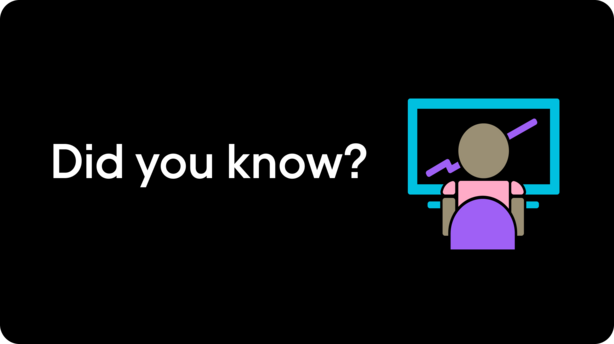Understanding National Insurance for Self-Employed Individuals

The National Insurance rates for self-employed individuals have changed. This article will delve into the updated rates, providing clarity on what they mean for self-employed professionals in the UK. Understanding these changes is crucial for effective financial planning and compliance with tax obligations. With the support of the Pie Tax App and our expert tax assistants, managing these updates becomes a lot easier.
National Insurance contributions for self-employed individuals fall into two categories: Class 2 and Class 4 NICs. Class 2 contributions are fixed weekly amounts for those earning above the Small Profits Threshold, while Class 4 contributions are computed as a percentage of profits over a certain threshold. Understanding how these rates apply to your income is paramount for accurate financial planning and budgeting.
The National Insurance system is a vital component of the UK’s welfare state, funding benefits such as the State Pension and National Health Service (NHS). As self-employed individuals, understanding your contributions and how they calculate is essential. Read on to find out everything you need to know about the National Insurance rates for the self-employed.
Class 2 National Insurance Rates
For self-employed individuals earning profits between £6,725 and £12,570 per year, the Class 2 National Insurance contribution for 2024 is £3.45 per week. This contribution gives you access to certain benefits like the State Pension.


Class 4 National Insurance Rates
Class 4 NICs apply to profits exceeding a certain threshold and are calculated as a percentage of those profits. For the 2024 tax year, the lower threshold for Class 4 NICs is £12,570, and contributions are calculated at 6% of profits between £12,570 and £50,270. For profits above £50,270, the rate is 2%.

Taxable profit thresholds have changed. Profits exceeding £12,570 incur Class 4 contributions. Review your accounts to ensure accurate reporting and avoid underpayment.Profit Thresholds for 2024

Class 2 contributions for 2024 are £3.45 weekly. This remains from last year, ensuring long-term benefits. Paying this amount secures your entitlement to the State Pension.Weekly Contribution Costs

Detailed Breakdown of 2024 Rates
Understanding the 2024 National Insurance rates for self-employed individuals is essential for proper financial planning. These rates impact the total amount you will need to contribute based on your earnings, potentially affecting your take-home pay.
Firstly, Class 2 National Insurance contributions must be made if your profits are between £6,725 and £12,570. This stands at £3.45 per week. This amount is relatively modest but crucial for securing certain benefits, including the State Pension.
Secondly, Class 4 National Insurance contributions apply to self-employed individuals with profits exceeding £12,570. The rate for 2023 includes a 6% contribution on annual profits ranging from £12,570 to £50,270. Profits exceeding £50,270 will incur an additional 2% contribution rate.
Filing and Paying National Insurance
Filing and paying your National Insurance contributions can seem complex, but with organised record-keeping and the right tools, it becomes manageable. As a self-employed individual, you are responsible for contributing to your NICs via the Self Assessment tax return. The Self Assessment allows you to declare your income and calculate the respective contributions. Failing to file or pay your NICs on time can result in penalties and interest charges.
The Pie Tax App can simplify this process by sending reminders for deadlines, helping you keep on top of your financial obligations. Additionally, the expert tax assistants available on the Pie app can offer personalised advice to ensure you are compliant with HMRC requirements.

Tips For Mastering National Insurance Rates

Class 2 NICs are paid by self-employed individuals earning over £6,725 annually. The current weekly rate is £3.45, providing access to benefits like the State Pension.Understand Class 2 NICs

Class 4 NICs apply to profits over £12,570. Rates are 6% on profits between £12,570 and £50,270, and 2% on profits above £50,270. Plan your finances accordingly.Class 4 NICs Thresholds

Maintaining precise records of earnings and expenses ensures correct NIC calculations. Use the Pie Tax App to track your finances and avoid underpayment or overpayment of NICs.Keep Accurate Records

Quick National Insurance Fact
National Insurance was initially introduced in 1911 to provide workers with sickness and unemployment benefits. Over the years, it has evolved to cover a broader range of benefits, including the State Pension and certain social security measures. The system aims to ensure that individuals contribute towards benefits they may need in the future, fostering a safety net for the working population.
Managing NICs Efficiently

To manage your National Insurance Contributions effectively, keeping accurate records of your income and profit is essential. Regularly updating your bookkeeping ensures that you can confidently calculate your Class 2 and Class 4 NICs. Utilising software solutions like the Pie Tax App simplifies this process by providing real-time insights and automated calculations of your contributions.
Additionally, consider setting aside a portion of your income each month specifically for NICs and other taxes. This practice prevents last-minute financial stress when payments are due. Leveraging the expert tax assistants available on the Pie app can offer valuable advice tailored to your financial situation, ensuring you remain compliant and financially organised.

Effective financial planning involves not just setting aside funds for National Insurance Contributions but also understanding the broader impacts on your financial health. Regularly reviewing your earnings against thresholds can help you estimate your contributions more accurately. This proactive approach minimises surprises at the end of the tax year. The Pie Tax App can assist with detailed financial forecasting and scenario analyses, allowing you to make informed financial decisions throughout the year.Financial Planning

While tools like the Pie Tax App provide significant assistance, consulting with professional tax advisors offers an additional layer of security and personalised guidance. The expert tax assistants available on the Pie app can provide bespoke advice based on your specific circumstances, helping you navigate complex tax laws and optimise your NICs. Professional advice ensures you are not only compliant with HMRC regulations but also taking advantage of any reliefs and exemptions applicable to your situation.Seeking Professional Advice
Summary
Mastering National Insurance rates for self-employed individuals involves understanding and accurately calculating Class 2 and Class 4 NICs, staying updated with thresholds, and effective financial planning. The Pie Tax App offers tools and expert assistance to simplify this process, making it easier to remain compliant and financially sound.
To streamline your National Insurance management, consider using the Pie Tax App for automated calculations and timely reminders. The expert tax assistants available on the Pie app can provide bespoke advice, ensuring you stay on top of your tax obligations and maximise your financial health.




